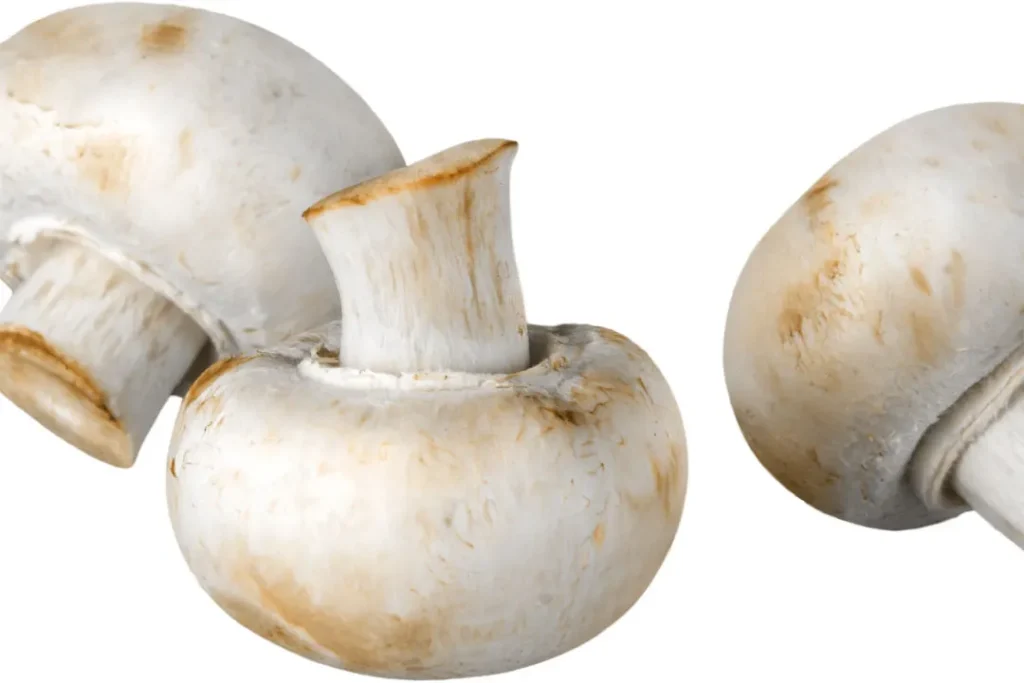Functional mushrooms have been used for millennia to provide various health benefits, from improved immunity and sleep quality to an increased libido. In order to harness the benefits of these helpful fungi, it’s important to know the best time to take mushroom supplements.
In recent years, the use of functional mushrooms has become mainstream, forming a multi-billion-dollar industry. Some functional mushrooms are also known as adaptogens or adaptogenic mushrooms, and are often sold as supplements or found as ingredients in products such as coffee creamers, teas, and non-alcoholic beverages.
To maximize the benefits these mushrooms have to offer, it’s important to know the best time to take mushroom supplements.
You May Also Like:
7 Great Benefits of Functional Mushrooms
Finding The Best Mushroom Supplements for Brain Health: 5 Brands Reviewed
The best time to take mushroom supplements:
Lion’s Mane
Named for its shaggy white appearance resembling the mane of a lion, the Lion’s Mane mushroom, also known as hou tou gu or yamabushitake, has been used widely in Asian countries like China, Japan, Korea, and India for both culinary and medicinal purposes.
The Lion’s Mane mushroom has many reported benefits and may help support the heart and gut. However, it is generally consumed to enhance focus and productivity due to its effect on brain chemistry, specifically concerning a process known as brain-derived neurotrophic factor (BDNF). Lion’s Mane may be able to increase BDNF precursors, allowing the body to produce more BDNF, leading to increased focus, memory, and improved general cognitive performance.
Lion’s Mane is a brain booster and is best used in the morning or before a task that requires strong mental performance. This is why it is included in many nootropic coffees and coffee creamers.

The best time to take mushroom supplements:
Cordyceps
Cordyceps is a genus of functional mushrooms used in traditional Chinese Medicine for centuries to treat illness, kidney disease, fatigue, and low sex drive.
However, its claim to fame is that it may aid with stamina during exercise by increasing the body’s production of the molecule adenosine triphosphate or ATP. ATP is essential for delivering energy to our muscles. One human study showed a 7% increase in VO₂ max (used to measure fitness) in those who took three grams of synthetic cordyceps for six weeks.
Additionally, research suggests that cordyceps mushrooms may help reduce inflammation, improve heart health, and combat the effects of aging. In combination with traditional treatments prescribed by medical professionals, these mushrooms may also help with type 2 diabetes management and tumor reduction.
Cordyceps’ ability to act as a stamina booster means a mushroom of this genus should be taken before exercising or before activities that require energy and stamina. For these reasons, it is also not a good idea to take cordyceps supplements right before bed.

The best time to take mushroom supplements:
Reishi
The Reishi mushroom, also known as lingzhi, has been used medicinally in Asian countries like China and Japan for hundreds of years. It is purported to support general health, increase energy, and boost the immune system. But its more popular use is for relaxation and sleep.
Studies suggest that Reishi may help you fall asleep faster and spend more time in non-REM sleep or NREM. The deep sleep phase of NREM is one of the most restorative phases of sleep where the body does important recovery work that aids in productivity, focus, and performance the next day.
Due to Reishi’s soporific and calming effect, the best time to take it would be at night before you go to bed.

The best time to take mushroom supplements:
Chaga
Chaga is a mushroom with a charcoal or rock-like appearance that grows on the bark of birch trees. It is commonly found in cold northern climates such as Siberia and other parts of Russia, Korea, northern Canada, Alaska, and various northern European countries.
Chaga is packed with antioxidants and has been observed to help reduce inflammation and support the immune system.
Furthermore, Chaga may help to lower blood sugar and cholesterol. In combination with medical treatment, Chaga may be useful in treating cancer. However, it should be noted that these were animal studies and more extensive research on humans is needed to clarify Chaga’s effects.
Chaga can be taken at any time of day and it may be necessary to consume it over an extended time to experience the full benefits.

The best time to take mushroom supplements:
Turkey Tail
Turkey Tail or Trametes versicolor, named for its colorful appearance, is a functional mushroom that has been used around the world for a variety of holistic purposes. Much like Chaga, it is packed with antioxidants and supports the immune system.
Additionally, some studies show that Turkey Tail may have immune-boosting and antitumor effects in cancer patients when combined with prescribed medical treatments. This can help to increase the efficacy of certain conventional treatments.
Turkey Tail can be taken any time during the day. But it may be best to take it when you’re sick to help support your immune system.
The best time to take mushroom supplements:
What supplements to take?
There are many high-quality functional mushroom supplements on the market today. However, some do not include the most beneficial parts of the mushroom and are not worth the cost.
Real Mushrooms offers a variety of functional mushroom products that serve many purposes, supporting cognitive performance, physical performance, longevity, immune strength, or digestive health. The “real” in Real Mushrooms refers to their manner of harvesting and using their mushroom crops. The company only uses the fruiting body or visible portion of the mushroom in their products, which contains a majority of the beneficial active compounds. This distinguishes Real Mushrooms from other functional mushroom companies that sometimes use the mycelium, instead of the mushroom, as well as the grain substrate or “grain spawn” that the mycelium grows in.
The consumption of functional mushrooms is an emerging trend that offers many promises in the way of health and nutrition. The bulk of current research on functional mushrooms has been performed on animals, and more human studies are needed to fully clarify their effects and side effects. Furthermore, it is wise to consult with your doctor if you are planning to use mushrooms to help treat a medical condition. As the science behind the health benefits of functional mushrooms continues to emerge, these mysterious fungi continue to hold significant promise as components of some of the finest health supplements available.
Further Reading:
Eater: “In 2022, Mushrooms Cured What Ailed Us“
Today: “What Are Functional Mushrooms?“
Planet Money: “A golden age for nonalcoholic beers, wines and spirits“
Important Note: The information contained in this article is for general informational purposes only, and should not be construed as health or medical advice, nor is it intended to diagnose, prevent, treat, or cure any disease or health condition. Before embarking on any diet, fitness regimen, or program of nutritional supplementation, it is advisable to consult your healthcare professional in order to determine its safety and probable efficacy in terms of your individual state of health.
Regarding Nutritional SupplementsOr Other Non-Prescription Health Products: If any nutritional supplements or other non-prescription health products are mentioned in the foregoing article, any claims or statements made about them have not been evaluated by the U.S. Food and Drug Administration, and such nutritional supplements or other health products are not intended to diagnose, treat, cure, or prevent any disease.
